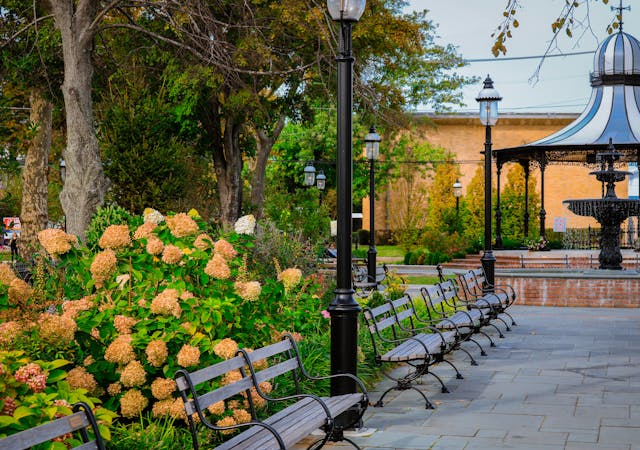Gardening HistoryLocal Agriculture
The Real Reason New Jersey Became the Garden State

New Jersey's agricultural legacy spans from colonial times to today's farm-to-table movement.
How the Nickname Began
The "Garden State" moniker entered official use in 1876, but its roots go back much further. During the American Revolution, New Jersey earned the nickname "The Breadbasket of the Revolution" for supplying wheat to George Washington's troops. By the 1800s, the state had transformed into a diversified agricultural powerhouse.
Three key factors drove this transformation:
-
Geographic Advantages: New Jersey's location between the Delaware River and Atlantic Ocean created varied microclimates perfect for different crops. The sandy soils of South Jersey proved ideal for tomatoes and blueberries, while the northern valleys grew prize-winning peaches.
-
Transportation Innovation: When the Camden & Amboy Railroad opened in 1834, it created a direct route to transport Jersey produce to New York and Philadelphia markets. By 1860, New Jersey farmers were shipping over 50,000 tons of vegetables annually.
-
Scientific Farming: Rutgers University became a national leader in agricultural research, developing early hybrid crops and soil science techniques that boosted yields. Their work helped New Jersey farmers produce up to three harvests per year using season-extension methods.
What Made New Jersey's Agriculture Unique?
Unlike single-crop states, New Jersey developed remarkable diversity:
-
The Tomato Capital: By 1920, Cumberland County supplied 60% of the nation's canned tomatoes, earning the title "Tomato Belt." Campbell's Soup established its headquarters in Camden to access this bounty.
-
Blueberry Birthplace: The first cultivated highbush blueberries were developed in Whitesbog, NJ in 1916, launching a global industry.
-
Year-Round Production: Using hot beds and cold frames, farmers grew winter greens for urban markets as early as the 1840s—a precursor to modern greenhouse agriculture.

The Garden State Today
Modern New Jersey still lives up to its nickname in surprising ways:
-
Urban Farming: Newark boasts the largest rooftop farm in the country (AeroFarms), using vertical growing techniques that yield 390 times more per square foot than traditional farms.
-
Farm Preservation: Over 2,300 farms participate in NJ's Farmland Preservation Program, protecting 240,000 acres from development.
-
Specialty Crops: NJ remains a top producer of cranberries, eggplants, and bell peppers, with its nursery industry ranking 5th nationally.
Why This History Matters for Gardeners
Understanding New Jersey's agricultural legacy offers practical insights:
-
Soil Wisdom: The same glacial soils that fed Revolutionary soldiers still make NJ ideal for backyard vegetables. A soil test can reveal your land's hidden potential.
-
Season Extension: Adapt historic techniques like cold frames for year-round home harvests.
-
Native Plants: Jersey-friendly species like beach plums or serviceberries thrive with minimal care while supporting local ecosystems.
Continue Exploring:
Urban Farming Innovations